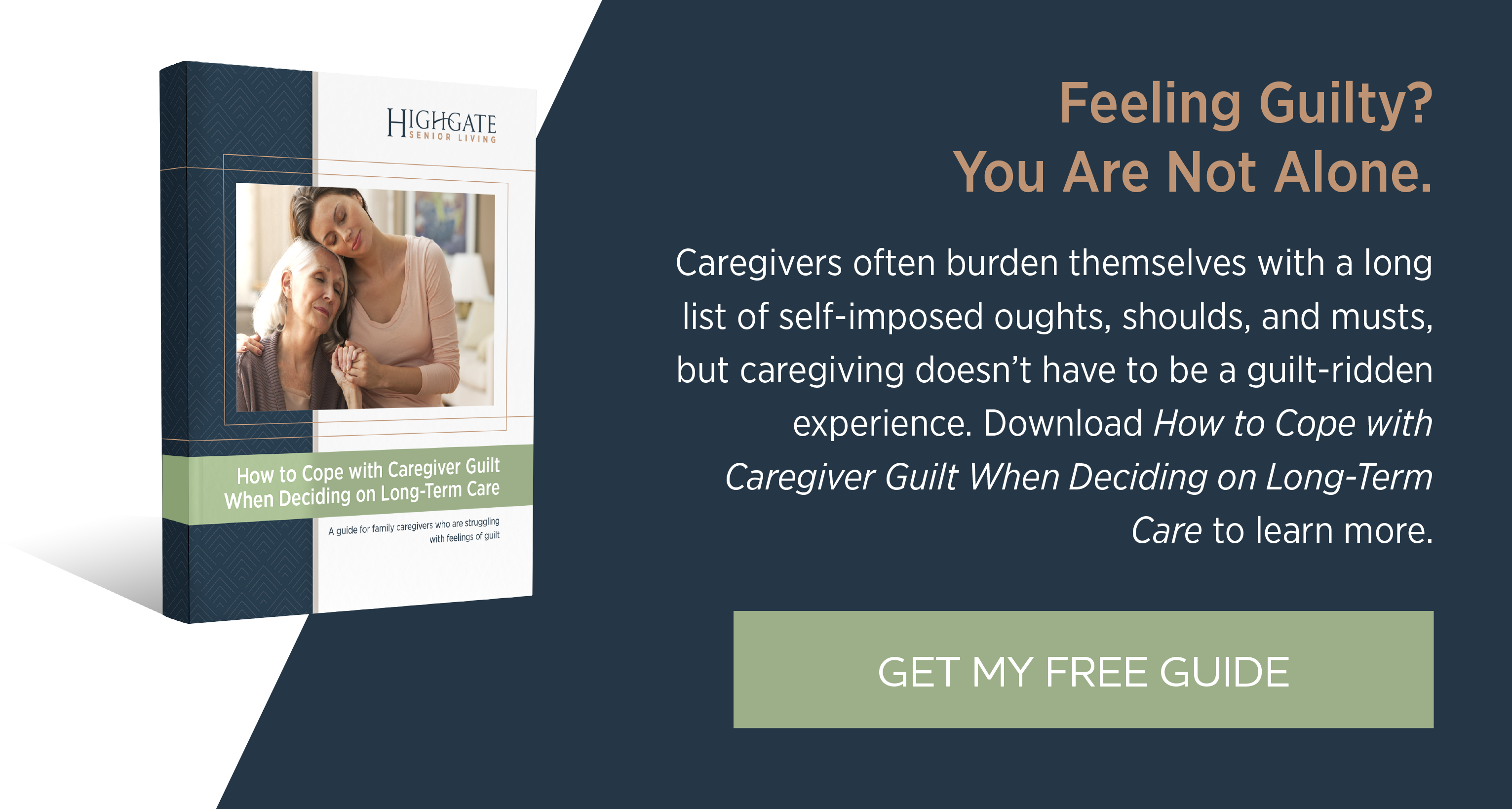.jpg?width=5760&name=how%20to%20manage%20(1).jpg)
If you live an hour or more away from a person who needs care, you are a long-distance caregiver. Long-distance caregivers often struggle with making sure they understand the needs of the care receiver while often feeling guilty about living so far away from those they are caring for. They frequently ask the questions, Am I visiting enough? Am I calling enough? Am I doing enough?
Long-distance caregiving can take many forms. From afar, you might:
- Provide emotional support to a primary caregiver
- Coordinate services for a loved one, such as arranging for household help or in-home care, and follow up to make sure there are no problems
- Manage a loved one’s medical bills or records
- Make yourself available for medical visits
What is often overlooked is the stress of guilt that frequently accompanies not being physically present to spend time with, comfort, and care for those you love. Here are some tips to help you manage long-distance caregiver guilt:
1. Accept the Limitations of Your Situation
Living just one hour away from an aging loved one can make caregiving more difficult and complex. According to a study by the National Alliance for Caregiving, more than 40 percent of long-distance caregivers have to rearrange work schedules, many miss work regularly, and most spend a significant amount of time traveling back and forth. Even when you are giving your all, it is easy to feel as if you are not doing enough. This is where long-distance caregiver guilt can rear its ugly head.
Acceptance is key. Know what your strengths are as a long-distance caregiver, and accept that there are real limits to what you can do from afar. You may not be able to visit your loved one regularly, but you can call, arrange a video chat, write, or find other personal ways to show you care.
2. Visit with Purpose
When you are able to visit your loved one, your inclination might be to come with a to-do list big enough to need its own suitcase. Pack lighter than that. Talk to your loved one and their caregiver ahead of time. Figure out the top item or two they would like your help with. Come with one or two items of your own.
Then focus on love, not duty. Remember that more important than any task on your list is actually spending time visiting. Staying connected to family helps improve everyone’s sense of well-being, and that sense of well-being will help alleviate any thoughts of guilt that can often drive a deeper wedge between you and your parent.
3. Be Supportive
If a sibling or another loved one lives close by and handles most of the caregiving, your guilt may be multiplied. Perhaps your sibling is resentful of your distance or maybe you truly long to be closer and more helpful. Support the primary caregiver with words of encouragement, a listening ear, and financial support if possible. Do not let guilt prevent you from reaching out with loving support.
4. Get Smart about Smart Tech
Technology is one of the best ways to remain linked from afar. Smartphones and tablets with Wi-Fi capability allow for FaceTiming, Skyping, and being able to “see” each other, even if not in person.
If a source of your long-distance caregiver guilt is that you cannot be as hands-on with medical care as you would like, there is a wide selection of smart devices designed to help the elderly and their caregivers:
- With the Tricella Smart Pillbox, you will receive smartphone notifications if your loved one forgets to take their pills or accidentally takes the wrong ones.
- With the Blip Blood Pressure Monitor, you will automatically receive updates of your loved one’s vitals no matter where you are.
- If you are concerned about your parent climbing the stairs or falling in the living room, the com Indoor Camera can help you monitor these dangerous areas right from your smartphone.
5. Have Healthy Boundaries
Continue to maintain a positive outlook by doing your best and reminding yourself that all you do goes beyond duty. It is a labor of love and care. When you do all you can for your loved one, you should not feel guilty about doing your best. Take a moment to reflect on those victories.
Additionally, encourage your parents to remain as independent as possible, too. Not having someone there to make every decision, cook every meal, and handle all of life’s duties can actually foster much-needed independence.
For the tasks that cannot be achieved alone safely, you may need to enlist the help of others. If you have family who can help with some duties, ask for help. If this is not an option, you may have to hire in-home help or seek respite care.
Do not forget to take care of yourself. Talk with close friends, siblings, and other family members about your feelings, find a caregiver support group, or get professional help if you are overwhelmed.
Fortunately, caregiving does not have to be a guilt-ridden experience. Download How to Cope with Caregiver Guilt when Deciding on Long-Term Care, a guide for family caregivers who are struggling with feelings of guilt.






